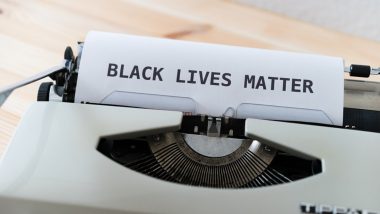The Oxford English Dictionary (OED) could not come up 'Word of the Year' for 2020 and is instead exploring how far and quickly the language has developed this year. Instead of releasing a single word of the year, they have released the 'Oxford Languages Words of an Unprecedented Year' report, looking at the many words now in our shared vocabulary. Some of the most used words and terms include 'coronavirus', COVID-19' and 'Black Lives Matter'.
The OED said, "It quickly became apparent that 2020 is not a year that could neatly be accommodated in one single 'word of the year.'" The OED report states, "The English language is studded with words from previous plagues and pandemics, mass social disruption, and an abundance of expressions that fulfil humanity's perennial need to describe an often inhospitable world." It further adds, "Though what was genuinely unprecedented this year was the hyper-speed at which the English-speaking world amassed a new collective vocabulary relating to the coronavirus, and how quickly it became, in many instances, a core part of the language." Oxford English Dictionary Names 'Words of the Year 2020', Says Couldn't Accommodate a Single Word.
From March onward, 'coronavirus' was one of the most frequently used nouns in the English language. Other words include "pandemic" began to dominate, including "Covid-19," a word first recorded on February 11 followed by "lockdown," "social distancing" and "reopening." However, not all of the words on the OED list are related to the coronavirus pandemic. Some other terms that were used widely include "Black Lives Matter," "defund," and "systemic racism" coinciding with the protests over racism and police violence.
Terms like 'Social distancing', 'lockdown' and 'physical distancing' also saw a rise from the month of March onwards. As lockdown eased, words like 'reopening' and 'easing' began to be used widely. Another widely used vocabulary has been 'face masks' especially 'medical mask' or 'surgical mask'.
Many epidemiological terms and words of the year relating to the medical response to COVID-19 were also widely used. Some of them include 'PPE', 'ventilator', 'essential workers' and 'frontline workers'. Education had become an important topic of conversation as governments decided to understand how to deliver effective teaching to children in schools across countries. There has been a lot of discussion on 'e-learning' and 'learning modalities'.
"Zoom has also had an influence on words reflecting the lighter side of our newly online working and social lives," says the report. An interesting environment-related coinage has arisen precisely because of the social impacts of Covid-19 – 'anthropause' (global reduction in modern human activity). "Mail-in" and "Belarusian" were both flagged as words of the month for August, referring to mail-in voting for the US election and the controversial reelection of Belarusian President Alexander Lukashenko, respectively.
"Mail-in" and "Belarusian" were both flagged as words of the month for August, referring to mail-in voting for the US election and the controversial reelection of Belarusian President Alexander Lukashenko, respectively.
"Moonshot," the name the UK government gave to its mass coronavirus testing program, appears in September, while "net zero" and "superspreader" are highlighted in October.
The Oxford Languages Words of an Unprecedented Year report looks at the words that shaped the year. The report says, "There is no doubt the volatile events of 2020 have had an unprecedented impact on the way we live and work, specifically Covid-19, which has drastically altered our daily lives and our language."
(The above story first appeared on LatestLY on Nov 24, 2020 11:38 AM IST. For more news and updates on politics, world, sports, entertainment and lifestyle, log on to our website latestly.com).













 Quickly
Quickly


